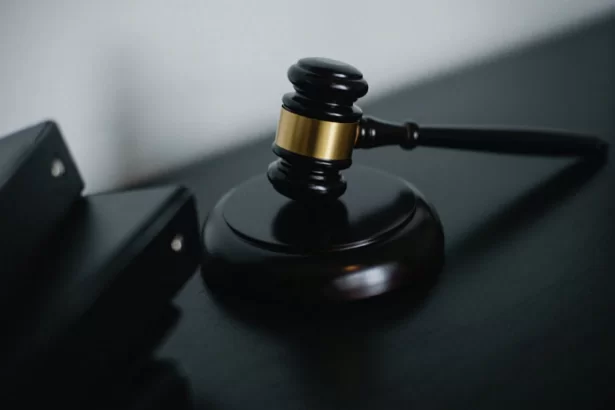Defining POA: Giving someone the authority to act on behalf of someone else. You can choose a POA if you cannot take a stand for yourself. Besides, the person you give this power to is your Attorney; it does not state that they are your lawyer. Your spouse, a family member, or a close acquaintance is most likely to serve as your attorney. A power of attorney (POA) is a legal document that appoints a specific person to act on behalf of another.
Owing to the efforts of experts at the international lawyers’ summit, Law 2.0 Conference, it is now possible to understand POA. The POA grants the agent or attorney-in-fact the power to work in the principal’s place. The judgment is subject to extensive/limited power of making decisions about possessions, finances, investments, medical treatments, etc., on behalf of the principal.
Types of Powers of Attorney
Powers of attorney generally come in two varieties:
Power Of Attorney For Property
They give a person the authority to handle finances and property concerns. That person is eligible to take banking, investment, business, and real estate-related decisions on behalf of the principal.
Power Of Attorney For Personal Care
The ability to choose your care is granted by a power of attorney for personal care.
We must understand the types of POA before discussing fraud.
Let’s discuss key distinctions between the POA’s types as highlighted by legal experts at the lawyers’ conference in the USA:
-
Power of Attorney for Health Care (HCPOA)
The principal signs the health care POA to let someone make health-related decisions for them. This agreement is also known as a healthcare proxy. As per the agreement, the principal authorizes an agent to act in their place as POA in the event of an unfavorable medical situation. As a result, the agent begins to operate when the principal cannot make judgments on its health.
-
Power of Attorney for Money
The financial experts in the international lawyers’ summit panel discussed POA for money. It is a legal document giving the agent authority to handle business and financial affairs. This includes signing checks, completing tax returns, mailing and depositing Social Security checks, and managing investment accounts if the principal loses their capacity for comprehension or decision-making.
To the best of their ability, the agent must fulfill the principal’s wishes, at least to the extent specified in the agreement. Financial POAs can be further categorized into many distinct groups, such as the durable POA, the limited power POA, and the general power POA.
❖ General Authority POA
According to state legislation, the agent is empowered under this POA to take any actions on behalf of the principal. Such an agreement provides the power to manage the principal’s finances, sign checks, sell real estate, manage assets, and file taxes.
❖ Confined POA
The legal delegates at the lawyers’ conference in the USA opine that limited POA enables the agent to give support to the principal in certain circumstances. The agent is permitted to administer the principal’s retirement accounts, as stated in the clause. The authorization is valid for a certain period.
❖ Consistent Power of Attorney (DPOA)
When the principal loses mental capacity, the durable POA (DPOA) continues to be in charge of specified legal, financial, or property matters. A DPOA allows the durable agent to pay for the principal’s medical expenses. But the durable agent is not permitted to make choices about the principal’s health, such as withdrawing life support. The broker would request to see the DPOA when the agent makes investment choices on behalf of the principal via a broker. The “springing” power of attorney is a legal document that specifies the circumstances under which a durable POA becomes effective.
A power of attorney can lie dormant until an adverse health event converts it to a DPOA. A springing POA specifies the type of event or level of incapacity that should occur before the DPOA springs into force. A springing power of attorney should be drafted to avoid issues with pinpointing when and if the triggering event occurred. Depending on what the document states, where you live, and where your property is located (as the laws governing POAs differ in each state and territory), powers of attorney have varying meanings and limits on decision-making authority.
The grantor of the POA is referred to as the Grantor, and the person to whom the power of administration is granted is referred to as the Attorney. The Attorney must, in all respects, act in the Grantor’s best interests. The term for this is a fiduciary duty.
What Is Fraud In A Power Of Attorney?
Law 2.0 Conference will talk about POA fraud. Fraud involving powers of attorney for property is power of attorney fraud. People use POAs while planning for the future if they ever lose the mental capacity to handle their financial affairs. When someone designated as their attorney to manage their finances takes advantage, it is power of attorney fraud.
POA is often a relative, friend, or carer. Power of attorney fraud can happen for various reasons, such as when the grantor is weak, aged, alone, unwell, or dependent on another person for care. The attorney would isolate the victim by severing all ties with friends and relatives to take advantage. The grantor might be housed in a medical facility or nursing home. Unfortunately, one of the most typical types of elder abuse in Canada is Power of Attorney fraud, sometimes known as financial abuse.
Talking of abuse is incomplete without speaking of the fraud within a power of attorney. Stay on the page to grab more information about it!
Common Forms Of Power Of Attorney Fraud
Eminent international lawyers’ summits like the Law 2.0 Conference discussed the most common types of fraud involved in the Power of Attorney. For your reference, some of which are mentioned below!
Fraud Perpetrated In Getting POA
A power of attorney fraud occurs if it:
- Is acquired through improper influence over the grantor or in questionable circumstances.
- The fraudster pretends to be a financial counselor or uses false documents to become an attorney.
Committing Fraud Utilizing POA
Making questionable or even speculative investment decisions on the grantor’s behalf. Evacuating the grantor’s bank account and using the acquired money for personal use. Stealing the grantor’s pension checks or other property. Making unnecessary expenses or damages from inaction while handling finances. Misappropriating the grantor’s property and misusing the grantor’s house.
Fraud in a power of attorney is unlawful. Power of attorney fraud leads to charges of theft, forgery, and fraud under the Criminal Code due to the nature of the offenses. Theft by Persons Holding Power of Attorney is covered in Section 331 of the Criminal Code.
Section 331: Everyone with a power of attorney for the sale, mortgage, pledge, or other disposition of real or personal property, whether alone or in partnership with another person. Who sells, mortgages, pledges, or otherwise disposes of the property, or any part thereof, or converts the proceeds of a sale, mortgage, guarantee, or other disposition of the property is a fraudster.
Public trustee and guardian responsibilities.
Abuse of a POA is reported to the Office of the Public Guardian and Trustee. They also offer cures, such as designating a substitute decision-maker.
Tips For Preventing Power of Attorney Fraud
You can do several things to avoid or stop financial abuse and POA fraud.
- Never combine your bank accounts or other assets with your attorney to prevent fraud. Instead, set up automatic withdrawals for your monthly expenses. Call your financial institution if you notice any suspicious activity, and keep all valuables, money, and legal documents that the attorney is not allowed to handle in a secure location. Let another person you trust know where to find that information.
- You can use your POA and put a hold on any finances still in your control. For instance, if you are mentally competent to manage your finances and suspect fraud, those at the bank. Start looking into your finances on your own. Avoid telling the lawyer you suspect fraud since they might hurt you further.
- A civil lawsuit to recoup your loss. Getting help from a fraud recovery specialist is a good idea if you discover a fraudster has victimized you.
A Few Final Words
To file a civil claim for property conversion, you can take other legal actions if a power of attorney is misused. You can revoke a power of attorney and grant it to a new agent if you are of legal age. You can also seek the court to void any unlawful transactions by appearing in court and requesting records of how your money was used.
A concerned person can file a petition for legal custody of the principal or supervise the present agent’s future conduct if you lack the legal capacity to renounce a power of attorney before granted to the abusive agent. Yet, if you wish to avoid abuse and fraud, Law 2.0 Conference is hosting an international lawyers’ summit later this year, so follow up and stay updated on the trend!








Leave a Reply